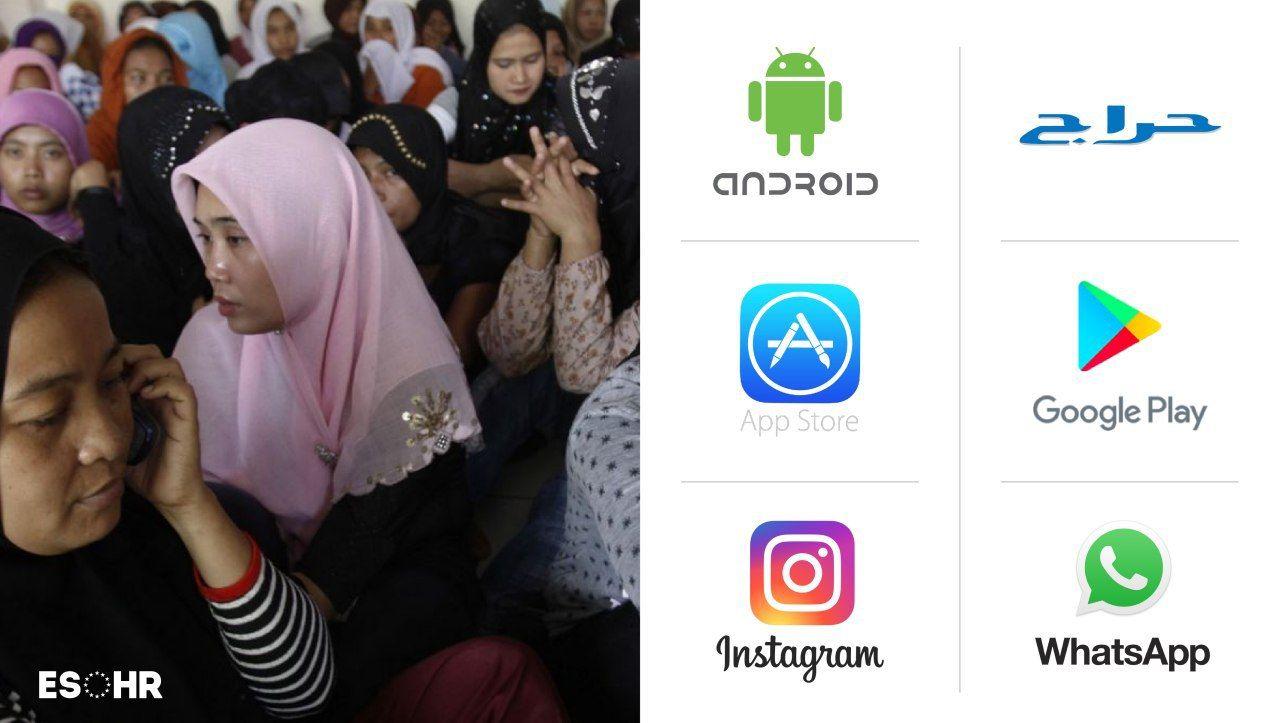
Special rapporteurs from the United Nations have raised the issue of facilitation of slavery and human trafficking in the Kingdom of Saudi Arabia via online apps.
A letter, sent on 19 June 2020, was signed by the Special Rapporteur on contemporary forms of slavery; the Working Group on the issue of human rights and transnational corporations and other business enterprises; the Special Rapporteur on human rights of migrants; the Special Rapporteur on the right to privacy; the Special Rapporteur on the sale and sexual exploitation of children; the Special Rapporteur on violence against women, its causes and consequences; and the Working Group on discrimination against women and girls.
The rapporteurs stated that they have received information that mobile apps allowed in Saudi Arabia enable users to participate in the sale and purchase of domestic workers, including the Haraj app, known as one of the most popular commodity trading platforms. They noted that this app allows users to filter their search according to price, ethnicity, nationality, and other categories. Likewise, prices for domestic workers vary on these platforms according to their ethnic or national backgrounds.
Reportedly, some users of these apps buy domestic workers for less than USD 2,000, and then make an additional profit by reselling them at a higher price. The rapporteurs added that these apps are available online and on the Apple and Google app stores, and are also facilitated through posts on social media apps such as Instagram and WhatsApp.
The special rapporteurs noted that this issue was previously raised in a BBC news report revealing reports circulating about individuals whose goal is to sell women and girls, including children, especially from Southeast Asia and Africa.
The letter from the rapporteurs also highlighted that these individuals are living under what can be described as forced labor: their passports are confiscated, their freedom of movement and personal freedom are restricted, they are mistreated, and they are deprived of weekly days off and vacation time.
While the special rapporteurs noted that they are aware that most domestic workers work under the kafala [sponsorship] system that binds them to a single sponsor, i.e. the employer, there are still concerns about this system that were previously raised by the Special Rapporteur on contemporary forms of slavery. Likewise, many international human rights experts and organizations, including the Special Rapporteur on human rights of migrants, the Committee on Economic, Social, and Cultural Rights, the Committee on Elimination of all Forms of Discrimination Against Women, and the Committee on the Rights of the Child, have expressed their concerns that the kafala system increases migrant workers’ exposure to the risk of mistreatment and exploitation.
The special rapporteurs remarked that Saudi Arabia continues to create a favorable environment for violations of human rights and labor standards, which may amount to forms of contemporary slavery. They raised general concerns about the working and living conditions of workers in Saudi Arabia and specific concerns about how online apps facilitate human rights violations.
The letter requested additional information about these apps from the Saudi government, as well as steps it intends to take to protect human rights violations by commercial enterprises, such as Haraj. The rapporteurs also asked the Saudi government for additional information about plans made or steps taken to fundamentally reform the kafala system so that the worker’s residency status is not linked to the employer and the worker is free to resign, end his or her employment, or move to another employer without the approval of the current employer.
